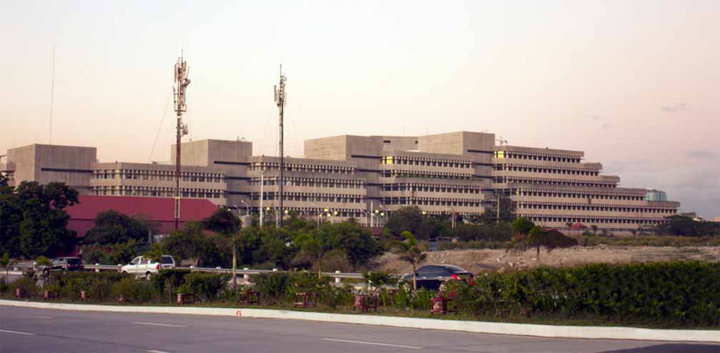
THE Senate is on track to pass an awaited remedial legislation extending the period for availing the proposed amnesty on estate taxes.
Inching closer to a plenary vote, Senator Pilar Juliana “Pia” S. Cayetano, who chairs the sponsoring Ways and Means Committee that held hearings on Senate Bill (SB) 2208, assured that the enabling legislation is projected to provide “economic relief to many Filipinos.”
“Our current condition necessitates and justifies the need to pass this measure at this appropriate time.,” the Senator said in sponsoring the bill for early approval. “Surely, its enactment can provide economic relief for many Filipinos during this time of global health and economic crisis.”
In seeking early passage of SB 2208, Cayetano clarified that Committee Report 256 updates the existing law by amending Section 6 of Republic Act (RA) 11213 or the Tax Amnesty Act.
She stressed that “our current condition necessitates and justifies the need to pass this measure at this appropriate time,” the Senator said. “Surely, its enactment can provide economic relief for many Filipinos during this time of global health and economic crisis.”
Cayetano recalled that the existing law passed in 2019 as RA 11213, otherwise known as the Tax Amnesty Act, gave taxpayers a one-time opportunity to settle their tax obligations, including an Estate Tax Amnesty program, adding that filing of estate tax amnesty returns took effect on June 15, 2019, granting a reasonable tax relief to estates with outstanding tax liabilities.
“In particular, estates of decedents who died on or before December 31, 2017 and whose estate taxes have not been paid or have accrued as of December 31, 2017 are given the period of June 15, 2019 until June 14, 2021, to file their estate tax returns. This deadline is only a few weeks away,” she added.
In a statement, the lawmaker lamented that “unfortunately, just ten months after the law was enacted—in March 2020—a global pandemic hit us, disrupting our daily lives, sending us into lockdowns and affecting our ways of doing business.”
Cayetano clarified that due to the strict travel restrictions and stalled economic activities in the time of Covid-19, many Filipinos have been unable to file their tax returns and settle their tax obligations. She added that the community quarantines imposed in different parts of the country prevented taxpayers from availing of the tax amnesty mandated by law.
Recalling data cited by the Bureau of Internal Revenue (BIR) during the Senate committee hearing, Cayetano noted the BIR’s collected revenue from the estate tax amnesty program was only around P2.5 billion, which was below its expected estimated additional revenue of P6.28 billion.
“Having said these, the Committee deems it appropriate that we extend the period of availment of the estate tax amnesty for another two years, in order to allow Filipinos who have not been able to affordably settle their outstanding tax liabilities during the period, to do so,” the senator said. “At the same time, extending the program will also provide the government with additional revenues that will fund priority programs for the benefit of the people.”
According to Cayetano, the proposed measure is essentially identical to House Bill 7068 transmitted from the Lower House.
“In the interest of time due to our limited session days and the upcoming June 14, 2021, expiration of the Estate Tax Amnesty, we did not deviate from the House version. Thus, we extended the period to avail of the estate tax amnesty from June 15, 2021 until June 14, 2023,” Cayetano said. “And, we introduced one new amendment, which is the removal of the requirement of the proof of settlement in order to avail of the estate tax amnesty.”
She recalled that during the Senate hearing, resource persons noted one main reason for non-availment of the estate tax amnesty is the fact that the heirs could not produce “proof of settlement,” required in the Tax Amnesty Act, prompting the Committee to decide, after hearing all the resource persons, ‘to delete this requirement given that under the laws of succession, ownership is transmitted upon the death of the decedent, whether or not it has been supported by any judicial or extrajudicial form.”
Moreover, Cayetano assured the endorsed legislation is expected to “further help our economy recover as Estate Tax Amnesty will allow access to previously locked assets.” She noted that the assessment of the National Tax Research Center states that “the grant of estate amnesty will unlock assets still registered under unsettled estates so that these may be used for commercial or economic activities that would create investment, jobs and taxable transactions.”
“There is no denying that the adverse effects of Covid-19 are very much evident in all aspects of our lives, not just in health,” she told her colleagues.
“We have not only lost lives to this pandemic, we have also lost precious time. While we remain focused on protecting people’s health and safety from the virus, we must also address the disruptions Covid-19 caused to other sectors, such as our economy,” Cayetano said.
She emphasized that “our current condition necessitates and justifies the need to pass this measure at this appropriate time. Surely, its enactment can provide economic relief for many Filipinos during this time of global health and economic crisis.”
Read full article on BusinessMirror



